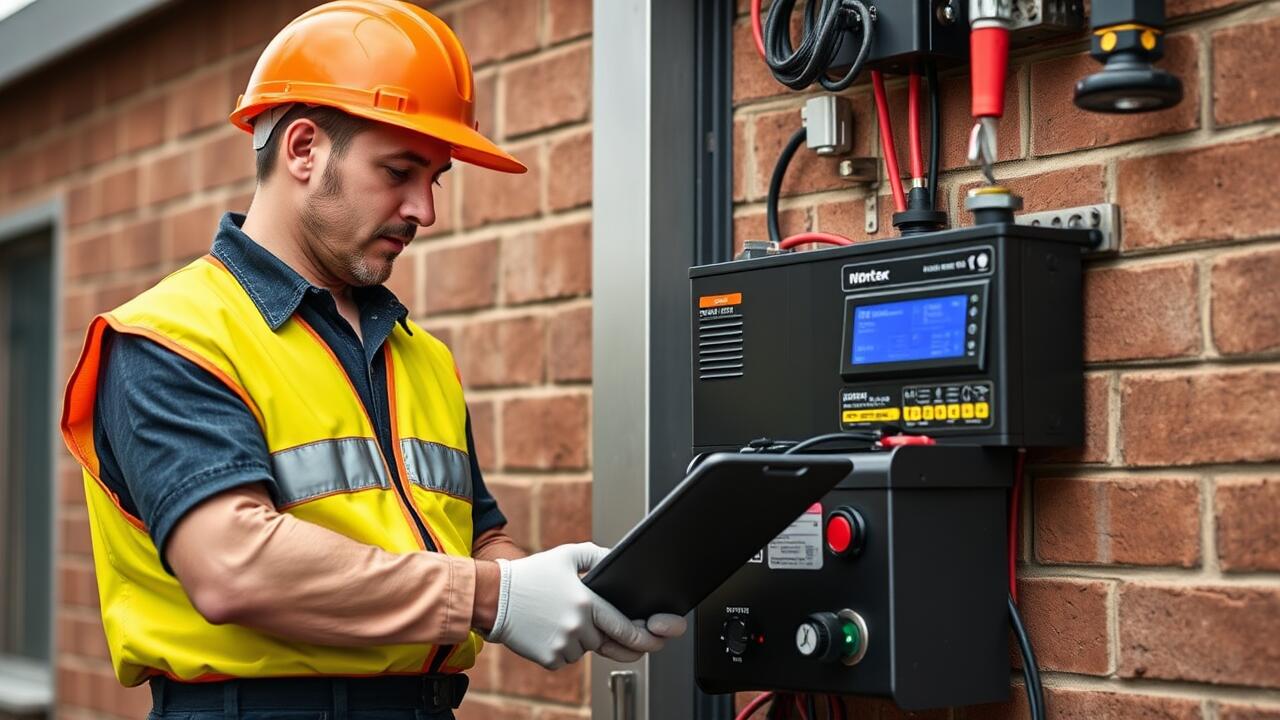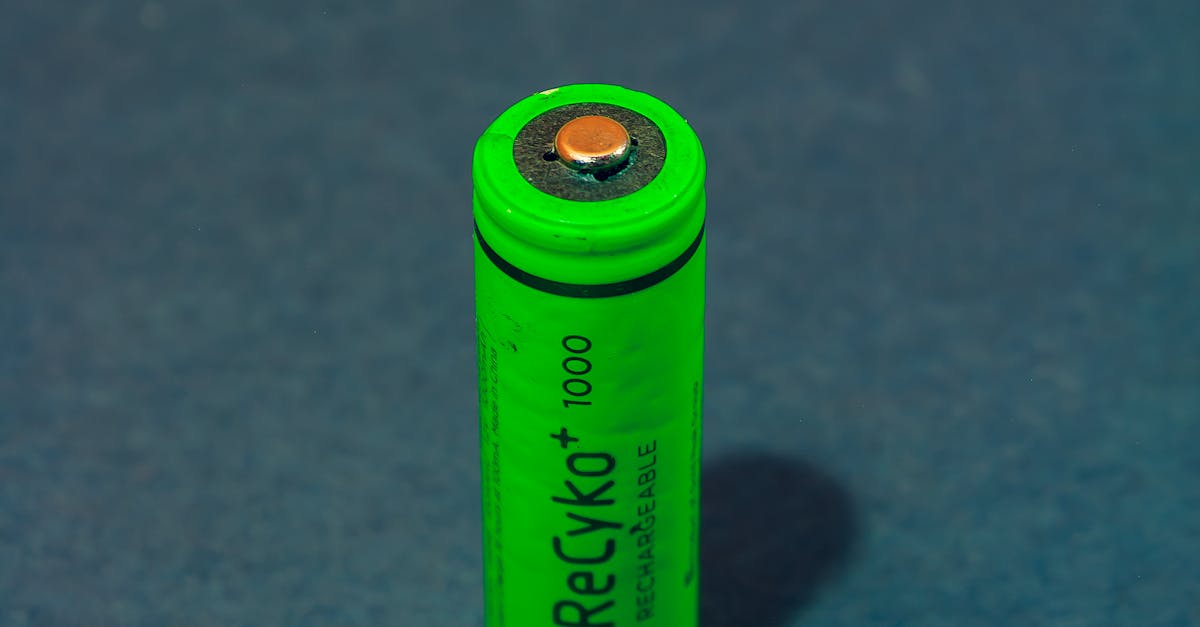
Labeling Your Batteries
Properly labelling your batteries is essential for easy identification and safe storage. Different battery types often have varying storage guidelines and lifespans, making it crucial to differentiate between them. You can utilise simple labels or colour-coding systems to signify the battery type, such as alkaline, lithium, or rechargeable. This approach not only simplifies your battery management but also promotes safety and efficiency when selecting the appropriate battery for devices around the home.
In conjunction with the labelling, consider noting the purchase date or expiration date on the battery labels. This practice enhances your ability to keep track of storage duration, ensuring that older batteries are used first. Home Battery Storage Meden Vale, Nottinghamshire, emphasizes the importance of maintaining an organised battery collection. By establishing a clear system for sorting and labelling batteries, you contribute to a safer environment and reduce the risk of using expired or damaged batteries in household devices.
How to effectively organise and label battery types
Organising and labelling battery types is essential for efficient home storage. Start by categorising batteries based on their type, such as alkaline, rechargeable, lithium-ion, and others. This not only simplifies the process of locating the right battery when needed but also helps in tracking their usage. Clearly mark each category using labels on the storage containers to ensure easy identification. Additionally, consider using different coloured labels for various battery types to enhance visibility and expedite retrieval.
When it comes to storing batteries, investing in a dedicated storage solution can make a significant difference. A battery storage box or organiser can help keep everything in one place while protecting the batteries from damage. If you are located in Home Battery Storage Alfreton, Nottinghamshire, look for options that are designed to prevent battery corrosion and maintain optimal safety. Make sure to store the batteries in a cool, dry place away from direct sunlight or heat sources to prolong their lifespan.
Safe Disposal of Expired Batteries
Proper disposal of expired batteries is crucial for environmental safety. Many households accumulate batteries that no longer hold a charge, which can pose risks if not discarded correctly. It is essential to avoid throwing them in regular rubbish, as this can lead to harmful chemicals leaching into the environment. Instead, look for local recycling points dedicated to battery disposal, as these facilities can handle hazardous materials appropriately.
In Kirkby in Ashfield, Nottingham, Nottinghamshire, residents can take advantage of community resources that provide safe battery disposal solutions. Some retailers and local councils offer designated collection bins specifically for batteries. Participating in these initiatives not only ensures responsible disposal but also supports broader efforts to protect the environment from the dangers posed by improperly discarded batteries. Always consult local guidelines for any additional regulations or recommendations in your area.
Guidelines for disposing of batteries responsibly
Many households accumulate batteries of various sizes and types over time. It is important to dispose of these batteries responsibly to minimise environmental impact. Residents of Selston, Nottinghamshire, should be aware of local regulations regarding battery disposal. Many communities have designated collection points or recycling facilities specifically for batteries, ensuring they are handled appropriately.
Never throw batteries in the general waste bin. Instead, look for recycling bins that accept batteries at local supermarkets or hazardous waste collection events. Many councils offer recycling services for batteries, providing clear guidelines for residents. By following these practices, households not only comply with regulations but also contribute to sustainability efforts in their community. Effective disposal methods are a crucial part of safe home battery storage in Selston, Nottinghamshire.
Recognising Signs of Battery Damage
Recognising signs of battery damage is crucial for ensuring safety in your home. A swollen battery is often an early warning sign that the internal components have degraded. If you notice any bulging or an unusual shape in your batteries, it is important to handle them with care. Leaking or corroded terminals may indicate chemical leaks, which can pose serious risks. Always inspect your batteries regularly, especially in a household setting like Home Battery Storage Hickling, Nottinghamshire.
Additionally, pay attention to any signs of rust or a foul smell coming from the battery. These symptoms may suggest a deterioration of the battery's outer casing or a failure of its internal seals. If a battery exhibits any of these concerning traits, it is advisable to dispose of it immediately and replace it with a new one. Keeping your batteries in a cool, dry place can also help mitigate damage over time. Proper vigilance can prevent accidents and allow for safer battery management in your home.
How to identify when a battery is no longer safe to use
Signs of battery damage can manifest in various forms, making it essential to inspect batteries regularly for safety. Bulging or swelling of the battery casing is a clear indication that the battery is compromised and should not be used further. Additionally, any signs of leakage, such as corrosion around the terminals or a white, powdery substance, signal a potentially hazardous situation. Batteries that show any of these symptoms should be handled with care and disposed of properly.
Another critical factor to consider is the age of the battery. If batteries have been stored for an extended period, especially in varying temperatures, their reliability may be affected. Batteries that become excessively hot to the touch during use or charging should be considered unsafe. Regular checks will help maintain safety, especially when storing them in places like Home Battery Storage Jacksdale, Nottinghamshire. Keeping an eye on these indicators ensures that only usable batteries remain in circulation at home.
FAQS
What is the best way to store household batteries?
The best way to store household batteries is in a cool, dry place away from direct sunlight and extreme temperatures. It’s also important to keep them in their original packaging or a designated battery storage container to prevent contact with metal objects.
How should I label my batteries for easy identification?
You can label your batteries by their types, such as AA, AAA, C, D, 9V, and rechargeables. Use a permanent marker or label maker to mark the container or the individual batteries, ensuring that the labels are clear and easy to read.
Is it safe to store batteries in the refrigerator?
While some people believe that storing batteries in the refrigerator can prolong their life, it’s generally not recommended. Cold temperatures can cause condensation, which may lead to corrosion. It’s best to store them in a cool, dry place at room temperature.
What should I do with expired or damaged batteries?
Expired or damaged batteries should be disposed of responsibly. Check local regulations for battery disposal, as many areas have designated recycling programmes or collection points for batteries. Never throw them in regular household waste.
How can I tell if a battery is damaged and needs to be discarded?
Signs of battery damage include corrosion, leakage, swelling, or a broken casing. If you notice any of these signs, it’s essential to handle the battery with care and dispose of it following local regulations to prevent any hazards.


